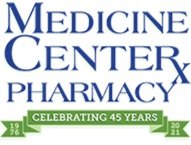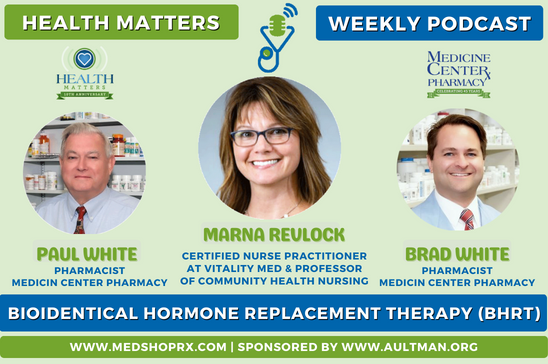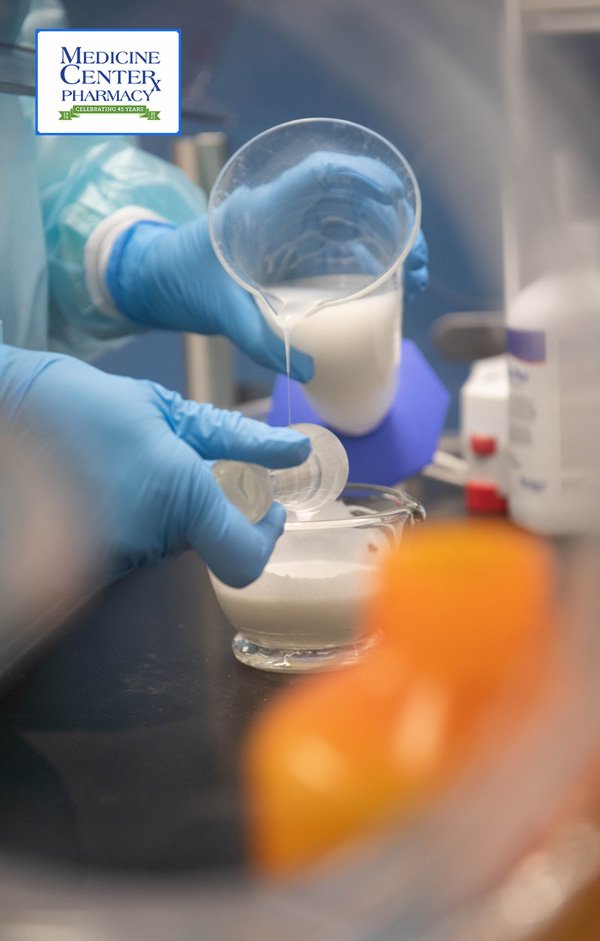Health Matters is a weekly radio show sponsored by the Medicine Center Pharmacy on WHBC 1480 AM in Canton, Ohio. This episode pharmacists Brad White and Paul White discuss cBHRT Compounding and the Risks to Patient and Provider Access with Pharmacist, Jim Hrncir, RPh from Las Colinas Pharmacy and Alliance for Compounding Pharmacy.
Help us fight the threat to compounded Bio-Identical hormone therapy!
The FDA is signaling that it may consider new restrictions on compounded hormones based on a flawed and biased report it commissioned.
Help ensure access to compounded Bio-Identical hormones, visit compounding.com for more information. Take Action!
Thanks for listening today! We’d like to remind our listeners, if you suspect you have a medical issue, please contact your healthcare provider. Thanks to our sponsors Cleveland Clinic Mercy Hospital, Studio Arts & Glass As always, we thank our listeners for joining us on Health Matters with the Medicine Center Pharmacy. Have a healthy week and we’ll see you again next Friday right here on News Talk 1480 WHBC.

Health Matters with the Medicine Center Pharmacy. I’m your pharmacist, Paul White. We’re glad you joined us. Before we begin, I’d like to thank our sponsors, Aultman Health Systems, Studio Arts & Glass, and Jenior Appraisals and Liquidations. Today Brad and I are broadcasting from our administrative offices and our guest is, Dr. Aaron Brescia, Board certified Head and Neck surgeon from Ohio Head and Neck.
Health Matters is a weekly radio show sponsored by the Medicine Center Pharmacy on WHBC 1480 AM in Canton, Ohio. This episode pharmacists Brad White and Paul White discuss Women’s Health.
The FDA is signaling that it may consider new restrictions on compounded hormones based on a flawed and biased report it commissioned.
Help ensure access to compounded Bio-Identical hormones, visit compounding.com for more information. Take Action!
Health Matters is a weekly radio show sponsored by the Medicine Center Pharmacy on WHBC 1480 AM in Canton, Ohio. This episode pharmacists Brad White and Paul White discuss wellness programs with Jennifer Anderson, Executive Director Louisville YMCA
Mike Poulsen, Director of Specialized Exercise & Personal Training Louisville YMCA.
Health Matters is a weekly radio show sponsored by the Medicine Center Pharmacy on WHBC 1480 AM in Canton, Ohio. This episode pharmacists Brad White and Paul White discuss hormone balancing with Dr. Timothy McKnight from Trinity Medical Group, Dennison, Ohio.
Health Matters is a weekly radio show sponsored by the Medicine Center Pharmacy on WHBC 1480 AM in Canton, Ohio. This episode pharmacists Brad White and Paul White discuss women's health care with Dr. Priya Ramaiah, a Gynecologist and Robotic Surgeon at Total Women's Care in Canton, Ohio.
Dr. Priya Ramaiah, a gynecologist and robotic surgeon at Total Women’s Care. Today we are talking about women’s health, compounding pharmacy role in bioidentical hormone replacement therapy, and the Mona Lisa Touch.


















